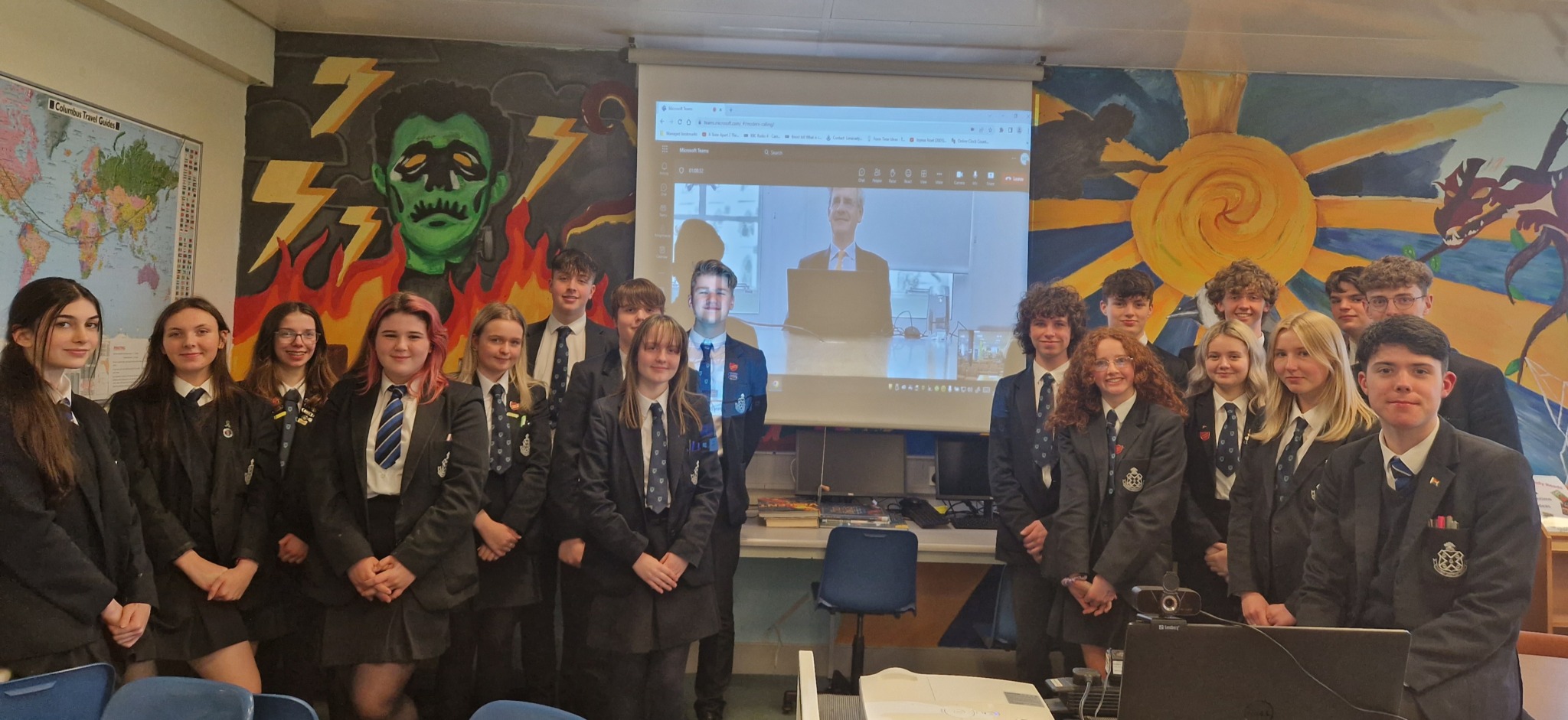In April, students participated in the UK Supreme Court’s ‘Ask a Justice’ programme for the first time. This educational outreach project enables students from anywhere in the UK (outside of London) to engage in dialogue with one of the twelve Supreme Court Justices. In other words – a virtual Q & A session with one of the most senior judges in the country.
Only ten students are permitted to speak from each school so interested students from Years 12, 13 & 14 drafted questions and sent them to Mrs Cartwright for the History & Politics department to decide who would speak. Ten questions sounds like a lot, but for our students who are motivated by the political issues of the day and so are thirsty for answers on the court’s decisions, it was trickier than first imagined! We had to ask questions that wouldn’t challenge Lord Briggs’ impartiality in any cases (existing or past) nor pressure him to give a personal opinion. The questions also had to be agreed in advance in case the Justice would decline to answer them. Despite the challenges – students formulated excellent questions and were able to pick Lord Briggs’ brain on a wide array of issues, ranging from career advice for those seeking a career in the legal sector to the challenges that artificial intelligence may present in future cases. Other questions were based on the process of judicial review and Northern Ireland’s unique position of still being subject to the European Court of Justice, thanks to the Windsor Framework.
The session, held in the school library, went swimmingly! Lord Briggs even answered our cheeky reserve question. Everyone involved agreed that although it would have been great to have had the time to ask supplementary questions, it was a very valuable experience, and one that provided plenty of food for thought for university/employment applications. Lord Briggs gave high praise back to our students too, noting that the programme was initially established to humanise the judges and make the courts more accessible to young people, but he was most impressed by our students’ understanding of the UK structure of governance and the constitutional challenges that modern Britain faces. He added that our students’ questions were the most rigorous he’d encountered in the programme. Go LGS!!

